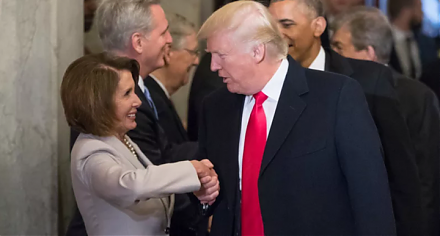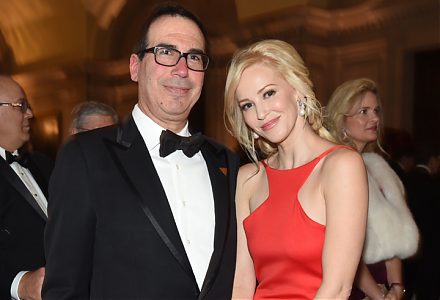

2017-12-09 08:37:00 Sat ET
treasury deficit debt employment inflation interest rate macrofinance fiscal stimulus economic growth fiscal budget public finance treasury bond treasury yield sovereign debt sovereign wealth fund tax cuts government expenditures
Michael Bloomberg, former NYC mayor and media entrepreneur, criticizes that the Trump administration's tax reform is a trillion dollar blunder because it adds another $1.5 trillion federal budget deficit to government debt over the next few years. The corporate tax cuts may restrict the U.S. government's ability to invest in education and infrastructure, may render health insurance more expensive, and may have no impact on real wage growth. Harvard public finance professor Martin Feldstein, however, says this tax overhaul is worth its costs because U.S. corporations will use their tax cuts to boost real wages and capex investments, and these firms will repatriate $2.5 trillion offshore cash to invest in job creation, manufacturing automation, and R&D innovation. In line with some economists' op-ed articles and blog posts on the probable effect of the Trump corporate tax cuts on real wage growth, a firm invests up to the point that the after-tax return on its labor and capital investments equates the return that investors require to allow the firm to expand its factor inputs. As the firm receives income tax breaks, it finances the purchase of new machines, plants, and computers. These capital expenditures make the typical worker more productive. Then the firm wants to hire more workers to run the new machines and computers etc. As a result, the typical firm raises real wages until the economy restores its steady state. Hence, tax cuts can effectively boost real wage growth ceteris paribus.
If any of our AYA Analytica financial health memos (FHM), blog posts, ebooks, newsletters, and notifications etc, or any other form of online content curation, involves potential copyright concerns, please feel free to contact us at service@ayafintech.network so that we can remove relevant content in response to any such request within a reasonable time frame.
2023-06-21 12:32:00 Wednesday ET

Michael Sandel analyzes what money cannot buy in stark contrast to the free market ideology of capitalism. Michael Sandel (2013) What money
2019-11-13 11:34:00 Wednesday ET

The new Brexit deal can boost British pound appreciation and economic optimism. British prime minister Boris Johnson wins the parliamentary vote on his new
2019-01-19 12:38:00 Saturday ET

U.S. government shuts down again because House Democrats refuse to spend $5 billion on the border wall that would give President Trump great victory on his
2026-04-30 08:28:00 Thursday ET

In the current global market for better biotech advances, medical innovations, and healthcare services, the new integration of artificial intelligence (AI)
2017-08-13 09:36:00 Sunday ET

Several investors and billionaires such as George Soros, Warren Buffett, Carl Icahn, and Howard Marks suggest that the time may be ripe for a major financia
2018-05-19 09:29:00 Saturday ET

Treasury Secretary Steve Mnuchin indicates that the Trump team puts the trade war with China on hold. The interim suspension of U.S. tariffs should offer in